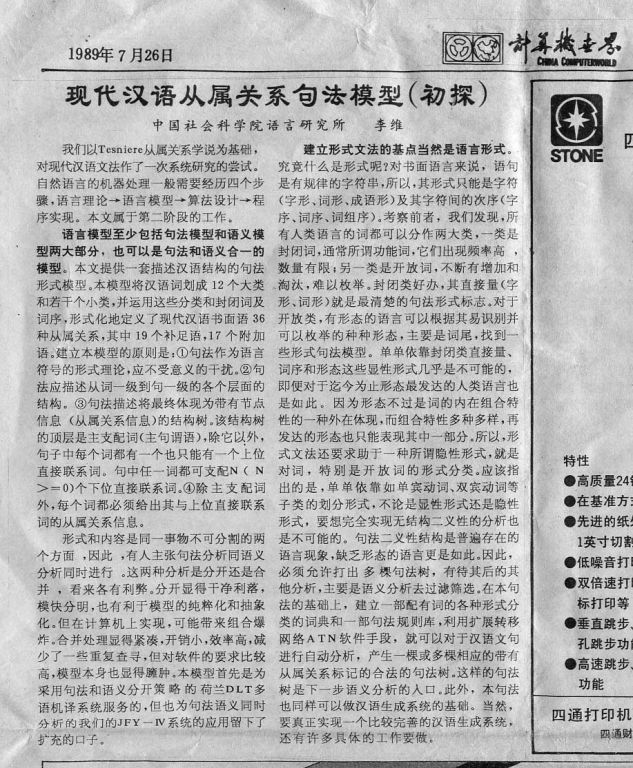肮脏语言研究:英语篇
屏蔽 |||
肮脏也是人类生活的一部分,总得有人研究。肮脏语言的研究可以提醒人们注意语言文明,防止语言暴力,支持垃圾清扫或过滤等。有了互联网的匿名性,人类更加肆无忌惮,不雅用语横行,但人类不幸文人幸,互联网也为语言学家对不雅语词的研究提供了极大的方便。
最近在做英语和汉语这方面的调查研究,发现其实不同文化和语言也差不多,都有庞大的肮脏语词词汇。其中主要类别不外乎是:
(1)性:性器官、性行为、性取向
性行为是人类繁衍的根本,人人做,人人骂,古今中外,概莫能外,这里收集了约30多个骂法:
// F-word and the like
fuck, fucken, clitfuck, cunnilingus, dicksucking, dickslap, fellatio, feltch, assfuck, handjob, humping, blowjob, fuckin, fucking, fucks, munging, pussylicking, rimjob, skullfuck, titfuck, tittyfuck, wank, wankjob, dick-sneeze, fucketh, fark, feck, fook, frick, blow job, jerk off, fuckest, motherfucking, mothafucking, mothafuckin, mothafuckin', mothafucka, grandmafucka, motherfucker,dildo, fuckbutter, fucker
很长时间,人类把同性恋看成是性行为中最为肮脏的苟且之事。英语骂同性恋的单词据不完全收集有近 70 个之多:
//homosexual
cocksucker, assfuck, ass-jabber, ass-pirate, assbandit, assbanger, assfucker, assgoblin, asshopper, assjacker, asspirate, bitchtits, brotherfucker, bumblefuck, butt-pirate, buttfucka, buttfucker, cockjockey, cockknoker, cockmaster, cockmongler, cockmongruel, cockmuncher, cocksmith, cocksmoke, cocksmoker, cocksniffer, cumguzzler, cumjockey, cuntlicker, dickfucker, dickmonger, dicksucker, dicktickler, carpetmuncher, dike, douchewaffle, dyke, fag, faggot, fagbag, fagfucker, faggit, faggot, faggotcock, flamer, fudgepacker, gaybob, gaydo, gayfuck, gayfuckist, gaylord, gaytard, gaywad, homo, lesbo, lezzie, mcfagget, muffdiver, penisbanger, penisfucker, penispuffer, polesmoker, queer, queerbait, queerhole, twatwaffle, unclefucker, fagtard
女性器官类有30个骂词,男性器官类有 20 个:
// vagina
cunt, axwound, coochie, coochy, cooter, cunnie, cunthole, minge, kooch, kootch, gooch, panooch, pissflaps, poon, poonani, poontang, punanny, pussy, poonany, clit, kunt, muff, snatch, twat, twats, va-j-j, vag, vajayjay, vjayjay, camel toe, pussies, queef
// penis
penis, bollocks, bollox, choad, dickhole, fuckstick, nutsack, pecker, prick, chode, schlong, scrote, testicle, nut sack, dick, cock, dickhead, hard on, boner, renob, cum, dickjuice, dickmilk , jizz, skeet, dickbeaters, butt plug
侮辱女性为女巫和婊子的也不少,连带有对女性第二性征的辱骂:
bitch, whore, hoe, punta, skank, slut, slutbag, cumdumpster, cumslut, bitchy
tits, chesticle
屁股离性器官较近,又是排泄污物的器官,自然也成为骂人的利器,收集到 15 个单词:
// butt
anus, arse, arsehole, ass, assclown, asscracker, assface, asshat, assmuncher, assshole, asswad, asswipe, fuckbutt, fuckhead, gayass, shitspitter
(2)弱智傻逼等:
英语有 80+ 个不堪入耳指着鼻子骂人的话语,这还仅仅是单词层,不包括扩展性和创造性的短语类骂法:
// idiot
ass-hat, assbag, assbite, asscock, asshead, asshole, asslick, assmonkey, assmunch, assshit, asssucker, bampot, bitchass, clitface, cockbite, cockburger, cockass, cockface, cockfucker, cockhead, cockmonkey, cocknose, cocknugget, cockshit, cockwaffle, cumbubble, cumtart, cuntass, cuntface, cuntrag, cuntslut, dickbag, dickface, dickfuck, dickwad, dickweasel, dickweed, dickwod, dipshit, doochbag, douche-fag, dumass, dumbass, dumbfuck, dumbshit, dumshit, fuckass, fuckbag, fuckboy, fuckbrain, fuckersucker, fuckface, fucknut, fucknutt, fuckhole, fucktard, fucktart, fuckup, fuckwad, fuckwit, fuckwitt, homodumbshit, jackass, jagoff, jerkass, peckerhead, shitass, shitbag, shitbagger, shitbrains, shitcunt, shitdick, shithead, shithole, puto, suckass, thundercunt, twatlips, whorebag, whoreface, tard, lameass, bastard, douche, douchebag, jerk, dickhead, assshole, dumb ass, shitface
(3)种族
非我族类,都是鬼子,于是有各种鬼子的骂法:
beaner|wetback|spic|spick (老墨巴子)
chinc|gook (老中巴子)
chink (东亚病夫)
cracker|spook|honkey (白鬼)
dago|deggo|guido|wop (意大利鬼子)
gringo (老外)
heeb|kike|kyke (犹太鬼子)
jap (日本鬼子)
kraut (德国鬼子)
pollock (波兰鬼子)
paki (巴基斯坦巴子)
mick (爱尔兰鬼子)
ruski (俄国老毛子)
sand nigger (中东巴子)
coon|negro|nigaboo|nigga|nigger|jigaboo|junglebunny|porchmonkey|niglet|jungle bunny|porch monkey (黑鬼)
可见骂的最多的还是苦难深重的黑人兄弟。不怪他们的平权运动和反歧视示威经久不衰。
(4)最后的杂类不外是屎(shit)尿(piss)等脏物,但远不如上述类别的丰富多样:
// SHIT
shit, bullshit, dookie, shitstain, shitting, shiz, shiznit, smeg, shitty
// PISS
piss, bugger off
最后还有 damn (诅咒) 和 hell (地狱)两个常用的诅咒见鬼的恶毒语词。
【Related】
http://blog.sciencenet.cn/blog-362400-827442.html
上一篇:解释不清楚“动量”并不是因为语言文字的问题
下一篇:职业随想曲:语言学万岁










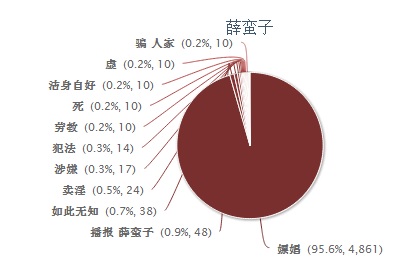
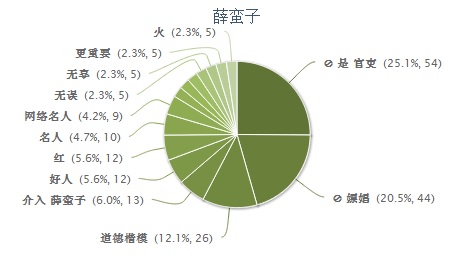
 【科普随笔:NLP主流最大的偏见,规则系统的手工性】
【科普随笔:NLP主流最大的偏见,规则系统的手工性】



 ,也许是我的电脑有问题
,也许是我的电脑有问题




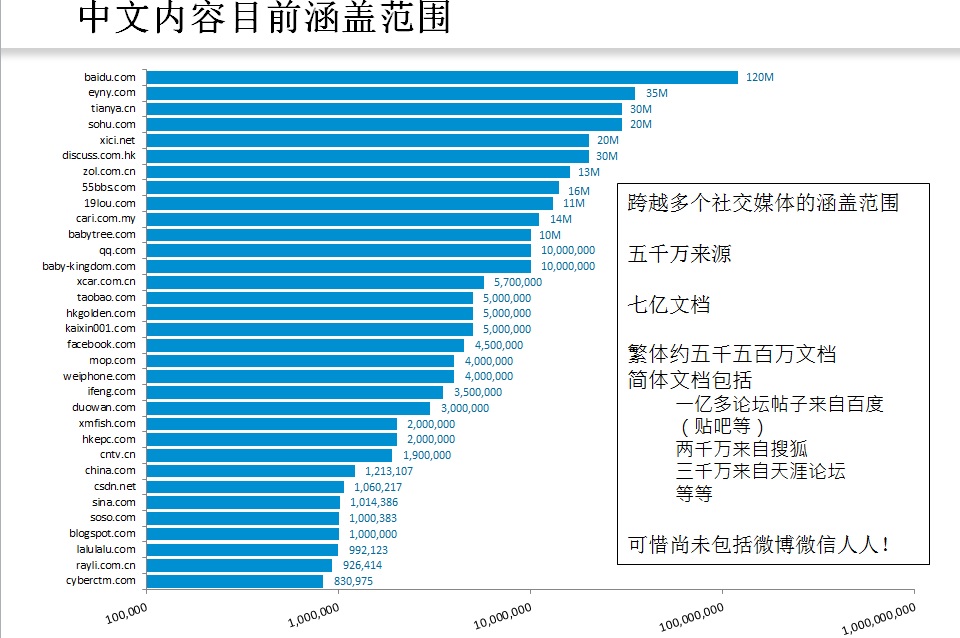






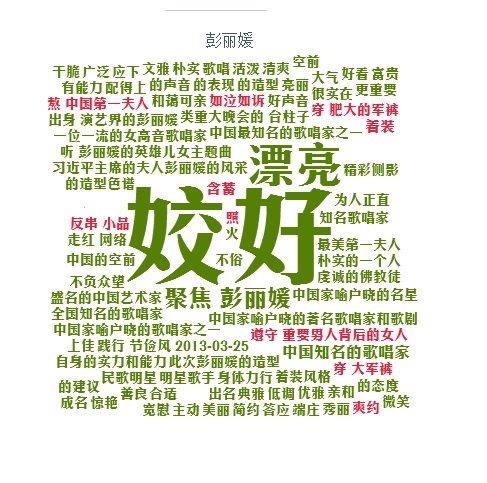
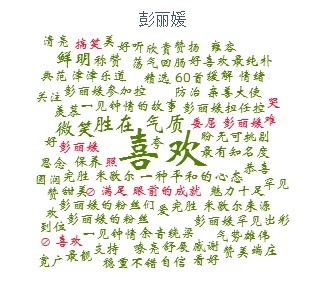
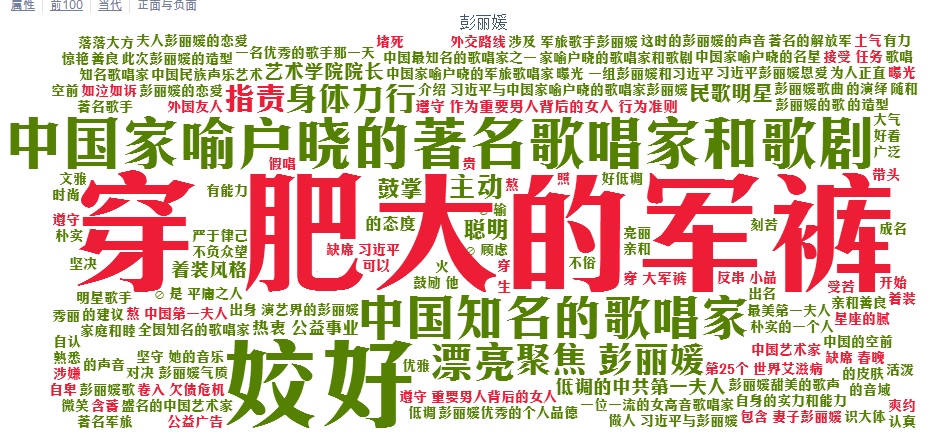

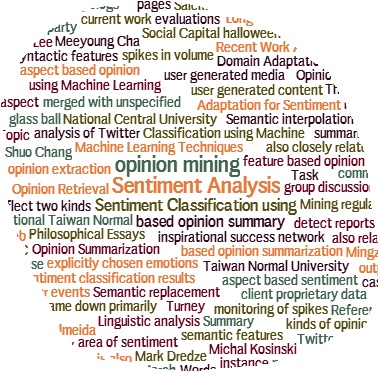
 and the first two. What behind is, I have the assumption (a truth I think) that ALL (well, except for 葡萄, 玻璃 and the like) multi-character 'words' are ambiguous (so-called hidden ambiguity) and hence have to be handled with dictionary at 'application' time (
and the first two. What behind is, I have the assumption (a truth I think) that ALL (well, except for 葡萄, 玻璃 and the like) multi-character 'words' are ambiguous (so-called hidden ambiguity) and hence have to be handled with dictionary at 'application' time (